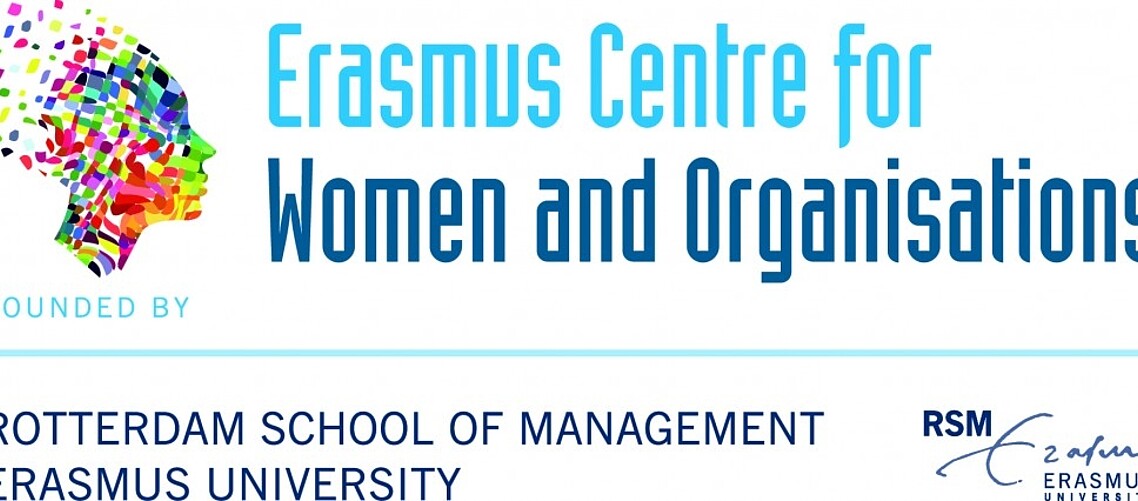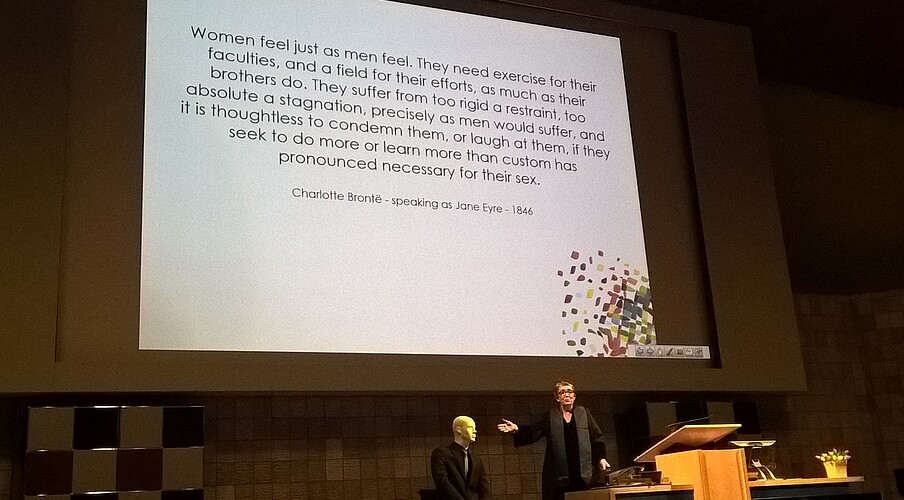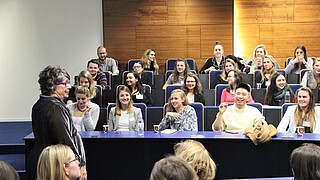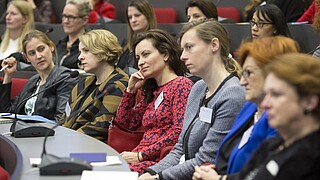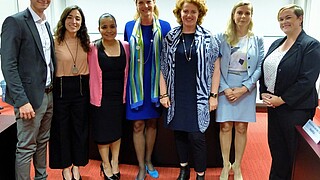Professor Bevelander delivered her first public lecture, entitled The 8th Summit: Women's Ascent of Organisations, to an audience of academics, colleagues, alumni, corporate partners and prominent female leaders with whom she has collaborated during almost two decades at RSM. Her lecture was a fitting culmination to the Women in Leadership conference held earlier that day and organised by the Erasmus Centre for Women and Organisations (ECWO), a centre Bevelander founded.
Falling well short of equality
Prof. Bevelander highlighted the current dismal status of women in decision-making roles across all sectors within Europe. “The European Commission 2015 statistics find that of the member states women constitute only four per cent of all CEOs at the largest listed companies in Europe,” she said. “The public sector also falls well short of equality and the academic sector fares not much better.” Women comprise only 17.1 per cent of all professors in the Netherlands.
Much of this inequality stems from our socially constructed ideas about women and their role in society and the family, ideas perpetuated by both men and women, she said: “Both men and women are more likely to hire a man than a woman with the same qualifications. Employers discriminate against mothers but not fathers. And a lack of understanding of gender bias by management undermines the implementation of gender-friendly policies.” The lack of women in senior organisational positions, says Bevelander, comes at a significant cost to performance: “Companies with the highest percentage of women in management have been shown to deliver great returns to shareholders.”
Her own research in the field, which has been published in the Academy of Management Learning & Education journal, reveals further insights into the mechanisms behind gender bias. “I found significant differences in how male and female students build networks of trust she said. “Given the relative scarcity of women in leadership positions, it seems logical that this pattern of behaviour should be addressed as part of leadership development.”
In response to these findings Bevelander created the Kilimanjaro MBA elective, a female-only elective designed to develop students' ability to collaborate with and empower one another during the ascent of the 5,895 metre Mount Kilimanjaro in Tanzania. The elective ran for four consecutive years from 2011 to 2014. Eighteen months ago she founded ECWO, a centre dedicated to advancing women's careers. Both initiatives she said, have “sparked debate at the university, have got people talking, and are helping to highlight the issue.”
‘Business courses are not gender neutral’
“Business schools claim they are shaping management attitudes and practice,” she said. “If this is the case we must first acknowledge that business courses are not gender neutral and are perpetuating gender bias.”
Bevelander gave three examples of gender bias in business education: the paucity of women in business cases, in leadership courses, and as role models. “How do we teach our leadership courses? Do we talk about Sheryl Sandberg, Angela Merkel, sisters Anne Wojcicki and Susan Wojcicki, what about Susan Barra – or are we still talking about the Jack Welchs and the Henry Fords? If leadership education does not make diversity a priority, change will be slow.”
EUR’s Diversity Committee
She applauded Erasmus University Rotterdam in supporting her endeavours to change gender inequality. “The university has demonstrated leadership by creating and mandating the Diversity Committee and by establishing ECWO. In my role as an empowered professor of business, I intend to play a significant role in helping to create a society where women are guaranteed the same opportunities as men to reach their aspirations.”
